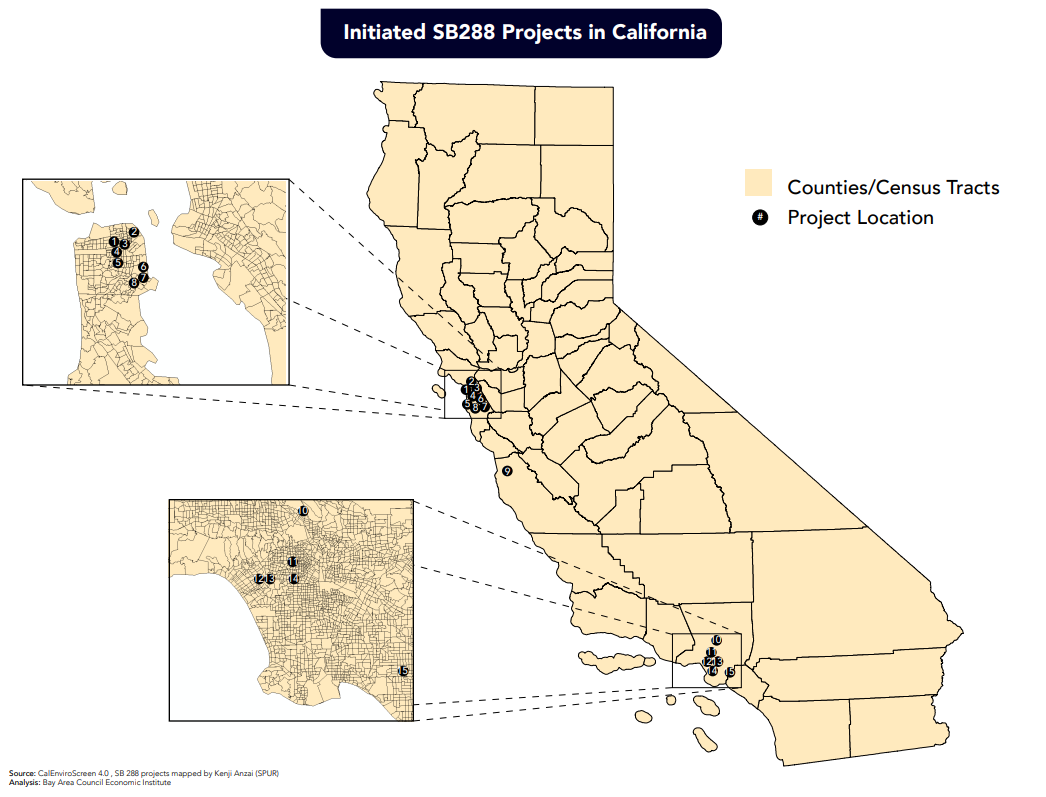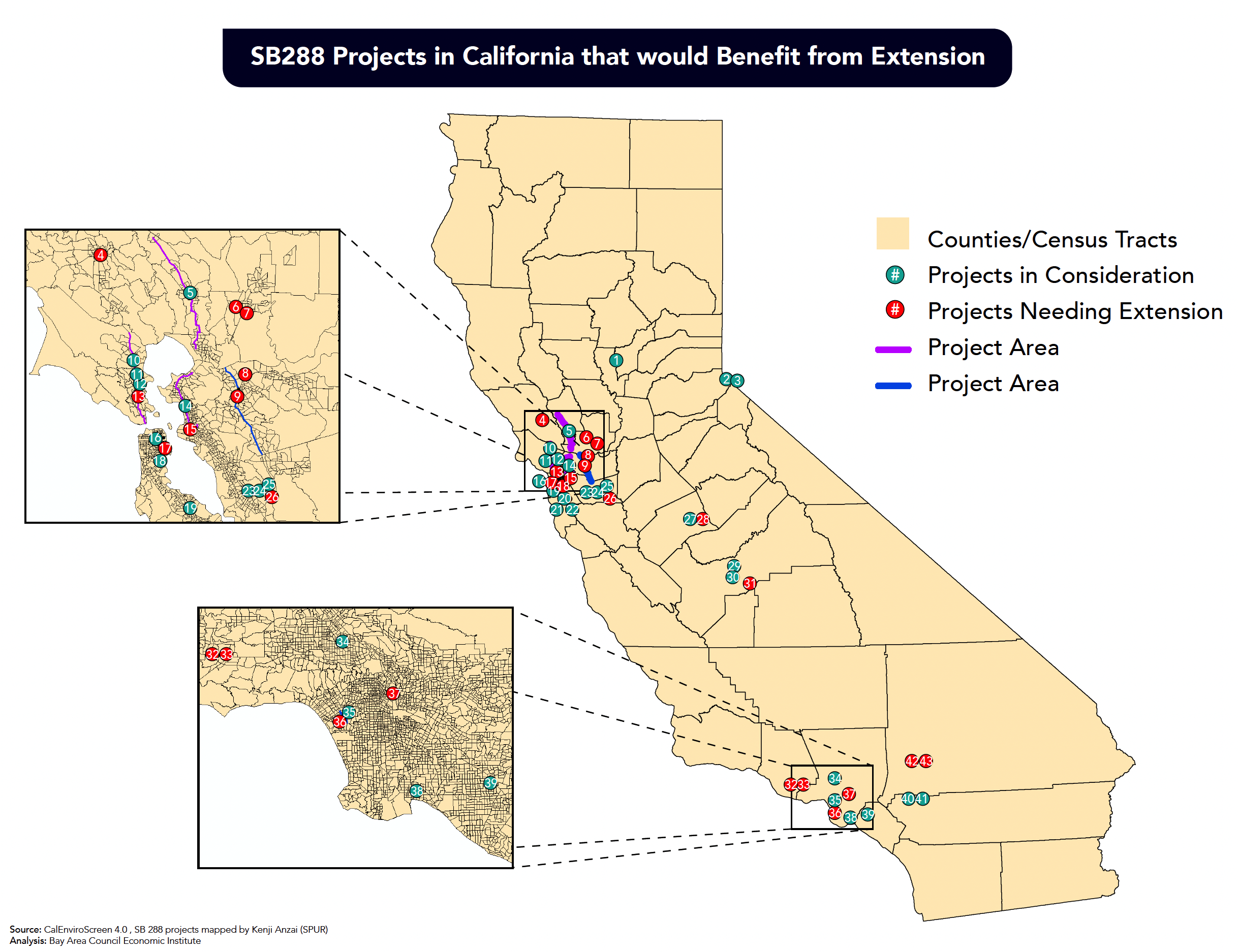What is SB288?
The purpose of SB288 (Wiener) is to reduce the time and cost of delivering sustainable transportation projects across California by exempting certain projects from CEQA that are in the public right of way and are in an environmentally cleared long-term plan. SB288 is a safer route than taking advantage of existing categorical exemptions, which can require extensive analyses to prove the project is exempt and can still be challenged in court. The law sunsets on December 31, 2022.
SB288 provides statutory exemptions from CEQA for:

Potential benefits include:

Bill’s Impacts to-date:
The SB288 project team mapped the CEQA projects that have been initiated to date, and those under consideration to understand where agencies have been using the exemption and for what project types the exemption is most frequently used.


What is SB922?
SB922 was introduced in February 2022 by Senator Wiener; the bill extends the existing exemption, fine-tunes the law for ease of implementation, has targeted expansions for electric fleet conversion, and adds an anti-displacement analysis requirement.
The goals of the bill are to:
• create safe, accessible and healthy communities for all;
• ensure reliable, high-quality transit for all;
• attract people back to transit;
• reduce climate pollution and congestion;
• reduce cumulative pollution burden in disadvantaged communities; and
• ensure meaningful involvement from communities impacted by the project.
With strict qualifying criteria, projects must be in an existing public right-of-way, be located in an urbanized area or urban cluster (50,000+ people), not add new auto capacity, not demolish affordable housing, and use a skilled and trained workforce. Projects that are over $100 million have additional criteria which include holding at least three public meetings, completion of a project business case to help the public engage in the project early, completion of a racial equity analysis and suggest mitigations for disproportionate impacts, and completion of a residential anti-displacement analysis on high-frequency projects in areas at risk of displacement.
The following organizations are co-sponsors of SB922:

To get involved:
To find out more, please contact Gwen Litvak at glitvak@bayareacouncil.org
To contact the Bay Area Council Economic Institute regarding the data presented here, please contact Estevan Lopez at elopez@bayareacouncil.org